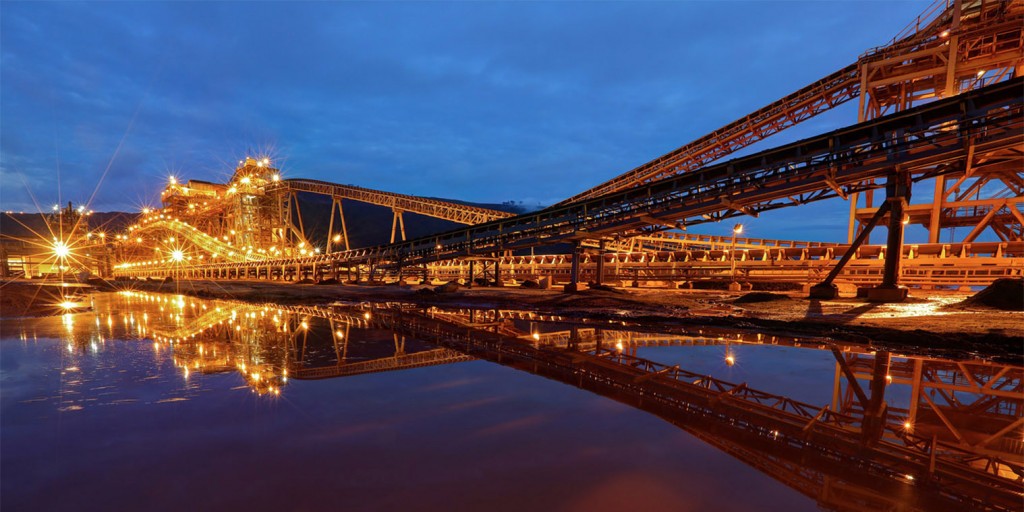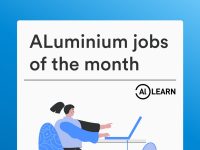South32 has just completed its first month on the market in the midst of rock bottom commodity prices and share prices descending 17% lower than the week of its debut. BHP Billiton has simplified its portfolio by demerging a group of high quality assets to create this independent global metals and mining company. Shareholders approved the demerger of South32 on May 6, 2015. Following the demerger, BHP Billiton shareholders received one share in South32 for each BHP stock they held. South32 Limited was formally listed in the Official List of the Australian Securities Exchange (ASX) on May 18 and it was valued at AU$11.3B (US$9.1B) on its debut, which was at the lower end of all the past forecasts. It was also listed in London and Johannesburg in the same month.
The company is named after the 32nd parallel south line of latitude that links its business centers in Perth and Johannesburg. The new company will produce alumina, aluminium, coal, manganese, nickel, silver, lead and zinc, from mines and smelters in Australia, Brazil, Colombia, South Africa and Mozambique. After the demerger, South32 becomes the world’s top manganese producer and it will operate the biggest silver mine. They also become the owner of a state-of-the-art alumina refinery and two modern, cost-competitive aluminium smelters. It has gross assets worth US$26.7 billion with its head office in Perth and has a global workforce of about 27,000 people.
BHP’s mainstream business centers around iron ore, petroleum, copper and coal. The assets other than that have always been the low key business segments for the company. BHP’s major businesses generated underlying earnings of US$ 446 million on revenue of US$ 8.3 billion last year.
BHP Chief Executive Andrew Mackenzie seemed very confident about the spin-off having said that they were still the strongest in the mining sector in terms of balance sheet.
In view of BHP Billiton, the spinoff of South32 would be a second chance for the world’s top miner to withstand the volatile conditions in the commodity market and they considered it to be a more viable and attractive option than the sale of assets. This is a part of BHP’s strategy not only to cut cost but also to simplify its business which has been struggling with falling commodity prices that is affecting mining and energy conglomerates around the world.
According to Mackenzie, the large diversified conglomerates that earned profits during the bullish years in the commodity market are no more profitable in the current market situation where commodity prices are low. So the time calls for smaller companies that are productive and self-sufficient.
BHP considers it to be a prudent decision in the face of the volatile market and accordingly has done its best to give the new company an opportunity to realize their potential by designing a balance sheet that protects the value of South32 shares from day one. BHP had a clear cut strategy of making two companies, one with huge assets with long term goals and the other with shorter-lived assets, processing plants and challenges in South Africa. In their view, the simpler asset allocation would allow BHP to speed up its cost cutting measures and help to beat the target of US$4 billion in savings by June 2017.
BHP has transferred just US$ 674 million in net debt to South32 in order to help the new company sail through the tough market conditions and be able to pay a dividend to its shareholders. Along with it, the demerged company will have about US$ 2.9 billion of balance sheet liabilities, in line with BHP’s promise to ensure that the new company begins its life with a manageable debt.
As far as the benefits of the shareholders are concerned, they can now make their own investment decisions regarding either or both of BHP Billiton and South32. Both the companies will have independent boards of directors and management teams to focus solely on their respective businesses, and choose strategies and business processes that suited their operations.
Newly elected South32 CEO Graham Kerr said the company would consider Mergers and Acquisitions of any commodity, other than gold, where South32 could add value. He also played down the prospect of investment in any new coal assets at present. The new company would aim to focus on completing projects in its aluminium, manganese, silver and coal businesses before making any new investments despite having a strong balance sheet and sufficient assets for sale. He added that if necessary, the company would consider output cut to boost commodity prices rather than producing in full capacity like its parent company.
South32 plans to pay out at least 40 percent of its underlying earnings to its shareholders in half-yearly dividends. The dividend policy makes it clear that dividends from South32 will fluctuate with the rise and fall of profits, rather than rising progressively irrespective of profits. BHP reiterated that it would not rebase its own dividend to accommodate dividend to the shareholders who hold shares in both the companies. It is worth noting that South32 assets contributed net profit after tax of US$738 million from July to Dec. 2014, which was more than 50 percent higher than analysts’ forecasts for the full year till June 2015.
On the flip side, the demerger will cause some cost burden on BHP. The total pre-tax costs of US$738 million are expected to be incurred in the implementation process including costs incurred till date. Like all other companies, the share prices of BHP Billiton and South32 may be affected by a range of factors, including market sentiment, commodity prices and foreign exchange rates which are beyond the control of BHP. Along with that, there is a possibility that both the companies may fail to realize anticipated benefits of the demerger due to circumstantial causes.
South32, undoubtedly is facing the fear of earnings slide due to the dwindling commodity prices and the falling share prices. However, analysts are of the view that it is too early to come to a conclusion about its future. The demerger will naturally take time to shape up in the intended manner and many other expected benefits of the demerger may take years to show up tangibly. The long ignored assets need more attention and time to give the desired result and it is just the beginning of the journey.















South32 Chairman Elect, David Crawford said “South32 comprises some of the highest quality operations in their respective industries. We have a clear strategy to improve performance as we seek to create strong alignment with our global shareholder base.